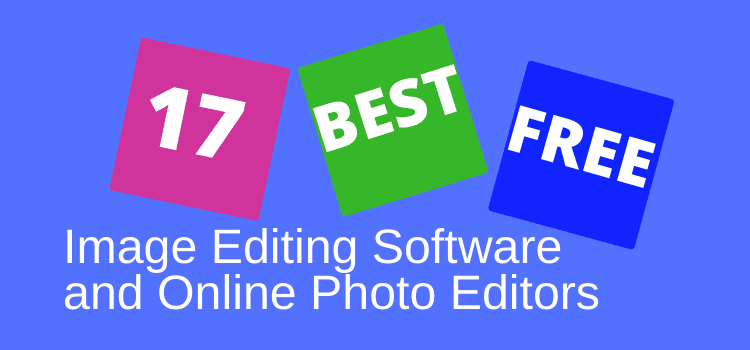
Of course, you always want people to discover your writing, whether it’s an article, a short story, or your latest book.
However, after you hit publish, you wait, and wait, and nothing happens. But it’s not just happening to you.
Until recently, writers and authors could pretty much rely on search engines to deliver regular traffic and readers. As long as a text was well-written and included some keywords, any piece of writing had a good chance of ranking well.
But all that has changed now with search engines becoming AI answer engines, and AI chat tools becoming search engines. It has meant a lot of no-click searches, resulting in a dramatic reduction in traffic for many writers.
What can you do now to find readers?
The first thing to do is don’t reach for the panic button just yet.
Yes, things have changed, but people haven’t. They still search for answers to questions, to seek advice, or simply for entertainment or light reading.
What has changed, though, is how people now find what they are looking for when there are fewer links to guide them from search engines.
The only way now to help people discover your writing is for you to give them more options or opportunities.
It might sound like you will need to work your fingers to the bone, but that’s not necessarily the case.
Even though search engines have changed, some things remain the same. They still index and rank content, so the ten blue links are still there, but they now appear much lower down on search result pages.
One plus is that not all search engines work the same. While it’s definitely more difficult to rank on Google, it is still relatively easy to rank on Bing, DuckDuckGo, and Yahoo.
It means that your SEO efforts are not wasted, but could need some fine-tuning. The most important tweak you can make is to fully answer questions readers may have.
AI search is all about supplying answers, so if you can provide a great answer, your chances of appearing increase. But don’t count on a link. That’s the big downside of AI search.
The reality now is all about creating more links to click to find your work. So, how can you do that?
Spread your wings and diversify

If you rely solely on Google or Amazon to find readers for your writing, it’s a good time to rethink.
The Internet is called the Web for good reason, because it has so many branches intertwining with each other.
And that’s a good clue today for attracting readers.
You need to move away from the search engine centric approach and position yourself on other parts of the Web where people are active.
For writers and authors, top-of-mind sites might include Wattpad, Medium, LinkedIn, Goodreads, or Vocal.
Social media can still produce positive results because many users search for information on their favorite networks. It is especially true for dedicated Facebook users.
Other useful social platforms include X (Twitter), Threads, Instagram, and TikTok.
But if you prefer, you can also look at using Reddit or Quora. The upsides of these two platforms are that they are often featured in search results, but don’t require a lot of interaction from you.
One often overlooked way of attracting readers is through images.
Visual search is increasing, so having attractive or informative images on your site can work to your advantage on search engines.
Another great avenue for visual search is Pinterest, because it is a 100% image search platform.
You can also look at building your email list or publishing guest articles on high-profile sites.
And if you aren’t camera-shy, you can always publish videos on YouTube.
Real results: what’s worked for me (and what hasn’t)
November 2022 was a big turning point when ChatGPT first launched.
But the biggest hit for writers came in September 2023, when Google started restructuring its algorithm for AI search.
Since then, like many writers, I have been slowly rebuilding and adapting to the new realities of search traffic.
Here’s a quick summary of what I’ve tried.
1. Publish better and more often
Instead of giving up, I pushed harder and published much more new content.
However, the big changes I made were to focus on answering questions readers may have and to offer advice in more depth.
Secondly, I started ignoring a lot of standard SEO practices, such as keyword optimization, keyword difficulty, and getting all green lights on my SEO tool.
Doing so helped me write better, and the result has been positive. Google and Bing have both indexed all my new articles, and they are now appearing in AI search as well.
I now see visitors coming from Bing Copilot, ChatGPT, Claude, and Perplexity.
Unfortunately, Google doesn’t show whether a visitor comes from Gemini, AI search, or standard search. However, I’m sure I must be getting at least some AI traffic from Google.
2. Using Pinterest regularly
I’ve had a Pinterest account for years, but I never used it.
That changed about a year ago, when I was looking for sources of new traffic.
From a zero base, I’ve managed to regularly attract around 1,200 readers per month from Pinterest clicks.
Sure, you need to do a bit of work to design and publish pins regularly, but it’s well worth it.
The big advantage with Pinterest is that you don’t need to interact like you would on Facebook or X. Just publish your pins, and you’ll have a new way for people to discover your writing.
3. I still use X (Twitter)
I don’t like interacting on X at all, but over the years, I have somehow gained about 150,000 followers.
And by luck, X verified my account for some unknown reason.
So, I still post links to my articles about three times a day, and while the traffic it generates is not brilliant, it’s steady and regular.
4. Reddit, but with care
If you try to self-promote on Reddit, you can often end up in trouble or banned.
I’ve had an account for a long time, and I enjoy the platform for all the information it provides, but also because of the privacy and anonymity.
The only link I have on Reddit is on my profile. But that’s enough to generate some interest and traffic.
5. Quora didn’t work well
I thought Quora might be a good option, but I gave up after only a few weeks.
The site really feels spammy now, and if you do answer a few questions, you could end up with your inbox full of Quora emails, as happened to me.
6. Facebook is a yawn for me
I don’t interact on Facebook at all, and only keep my account so my Facebook Page works.
The only time I post is when I publish a new article.
However, it brings in a sprinkling of traffic. If you are more active on Facebook, you will probably have much more success.
7. I wasn’t tempted by YouTube or TikTok
With my old looks and croaky voice, I didn’t even try.
But you could certainly have a lot of success if you are comfortable creating and publishing videos.
8. Did I try to fight AI with AI?
Naturally! At first, the temptation to use AI to write seemed logical. If search engines could use it, so should I.
However, the temptation to use AI didn’t last very long. The main reason was that AI-generated writing was consistently poor, regardless of the tools or prompts I used.
I tried lots of ways to get it to write like me, but it was always a failure.
Another reason was that it became clear that search engines were well aware of it. I’ve read about lots of bloggers who claim success with AI-written content, but it’s usually only fleeting.
However, AI has its uses, apart from writing. I now use it to brainstorm ideas and to check if I’ve missed any vital points in new articles. It’s also a decent grammar checker.
While I refuse to use AI to write for me, I’m ready to move with the times and changes in technology.
Conclusion
It used to be easy: hit publish and wait for readers to arrive. But those days are long gone now.
But it’s not all gloom and doom. If you’re prepared to look for new options and opportunities, you can still attract readers to your writing.
Sure, it might take a little while to gain traction on new platforms, but it can be worth it in the long run.
There’s no magic formula, but if you’re willing to adapt, experiment, and spread your wings, the only way is up.
So keep writing, sharing, and showing up for work.
Related Reading: Article Writing In The New AI Search World
Share This Article


